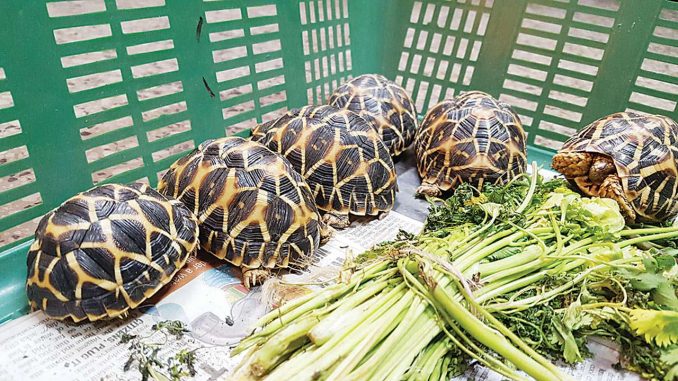
In News
India along with Nepal and Bangladesh has moved a proposal at the Conference of Parties 18 (CoP 18) of the Convention on International Trade in Endangered Species (CITES) to prohibit international trade of a species of Otter found in the Indian subcontinent and other parts of Asia.
Over 100 nations supported the proposal and voted in favour to end the commercial trade of the species.
In-Detail
- Acting within the framework of the international convention, India, Nepal and Bangladesh moved the proposal which was voted in favour by 102 countries, 15 against and 11 abstaining.
- The CoP 18 of CITES is being held at Geneva, Switzerland.
- The Smooth-coated Otter (Lutrogale perspicillata) is commonly found in India and many other Asian countries.
- The vote will now move the species from Appendix II of CITES convention to Appendix I.
- As per a report by AFP, the population of smooth-coated otters in the wild has fallen by 30%.
- In countries like Japan, these animals are kept as cute pets.
- The species is considered to be facing a high risk of extinction and is being affected by international trade. It is also facing habitat loss and degradation due to its conflict with humans especially fishermen.
- Man-made changes to aquatic habitats, poaching, illegal trade for pets, fur and medical uses, are threatening the species to go extinct.
CITES Appendices
- Appendix I of CITES include species that are threatened with extinction and international trade is allowed only in exceptional cases.
- Appendix II species have comparatively lower protection and Appendix III consists of species that are protected in at least one country, which has asked CITES Parties for assistance in controlling trade.
Tokay Gecko
- Another proposal was made by India is to include Tokay Gecko (Gekko Gecko) to Appendix II.
- The species is facing threats from hunting and trade for traditional medicinal use.
- This proposal too was passed.
- Apart from these two species, India has also proposed to include small-clawed otter, Mako shark, and the Indian Start Tortoise in Appendix I.
The CITES
- CITES is an international convention agreed by the parties to restrict international trade of wild animals and plants that threaten their survival.
- It was adopted in the year 1973 by 80 countries at Washington. Thus, the convention is also known as the Washington Convention.
- It came into force in 1975 and it now has 183 parties.
- The convention is binding on the parties but it will not supersede the national laws.
- It enables the parties to frame domestic legislations to ensure that the convention is implemented effectively in their national jurisdictions.

Leave a Reply
You must be logged in to post a comment.